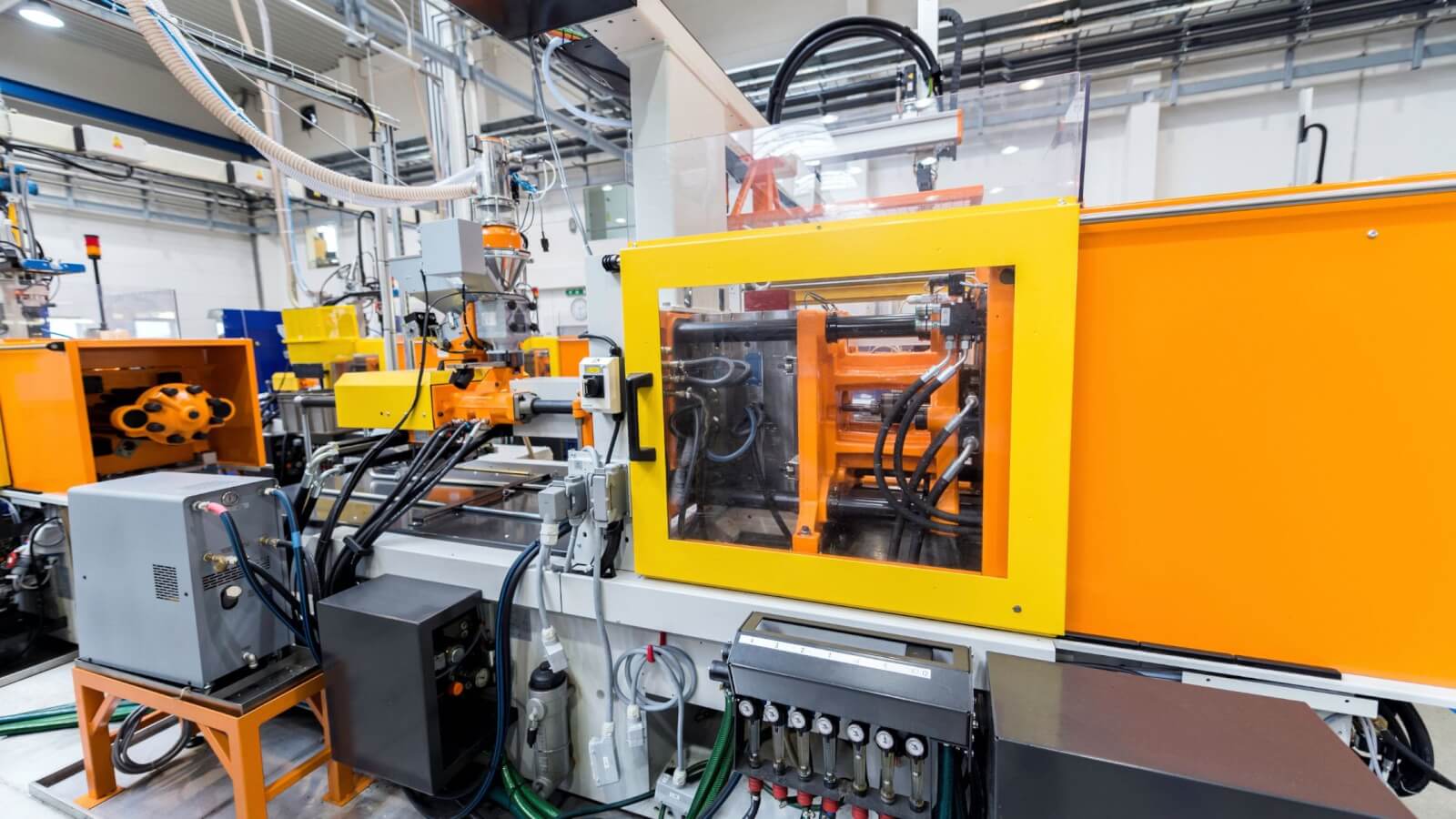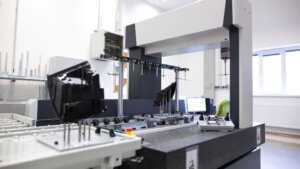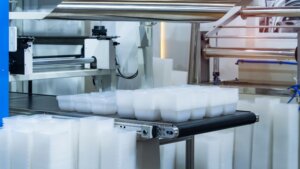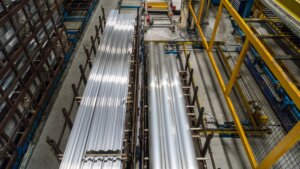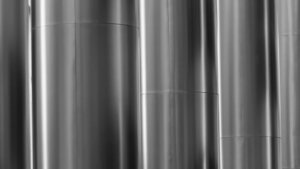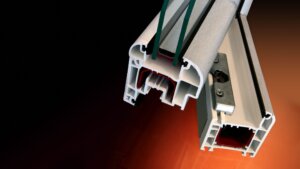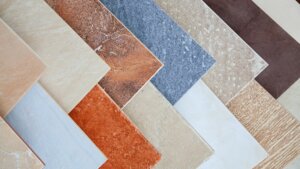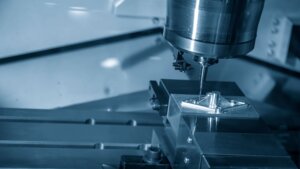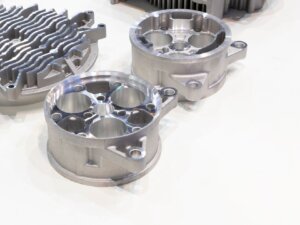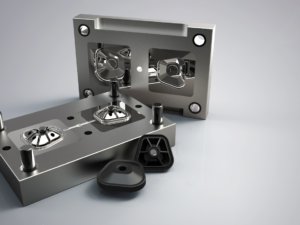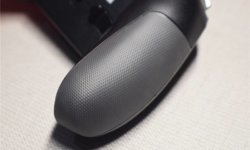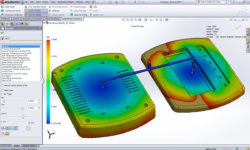The world of manufacturing is continually evolving, and at the forefront of this innovation is injection molding. A critical aspect that determines the success of this process is the selection of the right material. Understanding the nuances of different injection molding materials is not just a matter of technicality but a cornerstone of quality and efficiency in production.
What Are Injection Molding Materials?
Injection molding materials are the backbone of the injection molding process, a method widely used in manufacturing for producing parts in large volumes. These materials, which vary widely in their properties and applications, can be broadly categorized into thermoplastics, thermosets, and elastomers. Each category has its unique characteristics and suitable applications, making the material selection a pivotal decision in the injection molding process.
Understanding Thermoplastics in Injection Molding
Thermoplastics are a major category in injection molding materials, known for their versatility and recyclability. They become pliable or moldable at a certain elevated temperature and solidify upon cooling. This reversible process makes thermoplastics a popular choice in various industries.
Common Thermoplastics Used:
- High Density Polyethylene (HDPE): Known for its strength and resistance to impact.
- Acrylonitrile Butadiene Styrene (ABS): Offers a balanced combination of toughness and rigidity.
- Thermoplastic Polyurethane (TPU): Renowned for its elasticity and resistance to abrasion.
- Polycarbonate (PC): Distinguished by its high impact strength and transparency.
- Polypropylene (PP): Valued for its fatigue resistance and flexibility.
Exploring Thermosets and Elastomers
Thermosets and elastomers stand in contrast to thermoplastics. Once they are set, typically through a chemical reaction, they cannot be remelted. This irreversible setting gives them different properties and applications. Thermosets are known for their dimensional stability and heat resistance, while elastomers are recognized for their flexibility and elasticity, resembling rubber.
What are the Different Injection Molding Materials?
Amorphous Plastics
Amorphous plastics are a significant category in the realm of injection molding materials. Unlike their crystalline counterparts, these materials lack a precise, ordered molecular structure. This characteristic imparts unique properties to amorphous plastics, such as enhanced dimensional stability, lower shrinkage rates, and better transparency. Commonly used in various applications, these materials are pivotal in the industry due to their versatile nature.
Acrylonitrile Butadiene Styrene (ABS)
ABS is a widely recognized amorphous plastic, known for its robustness and adaptability. This material is a polymer blend that uniquely balances strength, gloss, and toughness. Its ability to be easily molded and its superior surface finish make it a preferred choice in numerous applications.
Properties
- Molding Temperature: Ranges from 200 to 250°C
- Max Temp: Up to 80°C
- Chemical Resistance: 7/10
- Tensile Strength: 3,000 to 7,500 psi
- Flexural Strength: 5,500 to 9,500 psi
- Impact Strength: 0.5 to 6 ft-lb/in
- Electrical Insulation: Excellent
- Cost per kg (in USD): $1.50 to $2.50
- Water Resistant: Yes
Applications
- Automotive parts
- Electronic housings
- Toys
- Computer keyboards
- Safety helmets
Grades and Brand Names
- Lustran® ABS
- Cycolac® (SABIC)
- Terluran® (BASF)
Polycarbonate (PC)
Polycarbonate (PC) is renowned for its impressive combination of transparency and impact resistance. This amorphous plastic is highly regarded for its strength and its ability to withstand extreme temperatures and impacts, making it ideal for use in challenging environments.
Properties
- Molding Temperature: 260 to 320°C
- Max Temp: Up to 135°C
- Chemical Resistance: 6/10
- Tensile Strength: 9,000 to 14,500 psi
- Flexural Strength: 12,500 to 18,000 psi
- Impact Strength: 12 to 16 ft-lb/in
- Electrical Insulation: Good
- Cost per kg (in USD): $2.50 to $3.50
- Water Resistant: Yes
Applications
- Bulletproof glass
- Medical devices
- Smartphone cases
- Protective gear
- Automotive components
Grades and Brand Names
- Makrolon® (Covestro)
- Lexan® (SABIC)
- Calibre® (Trinseo)
Polystyrene (PS)
Polystyrene (PS), another prominent amorphous plastic, is favored for its ease of molding and excellent aesthetic properties. It’s particularly noted for its clarity and rigidity, making it suitable for a wide range of applications, particularly in packaging and disposable consumer goods.
Properties
- Molding Temperature: 180 to 280°C
- Max Temp: Up to 70°C
- Chemical Resistance: 4/10
- Tensile Strength: 3,500 to 5,500 psi
- Flexural Strength: 4,500 to 6,000 psi
- Impact Strength: 0.3 to 2 ft-lb/in
- Electrical Insulation: Moderate
- Cost per kg (in USD): $1.20 to $2.00
- Water Resistant: No
Applications
- Food packaging
- CD cases
- Disposable cutlery
- Picture frames
- Laboratory ware
Grades and Brand Names
- Styron® (Trinseo)
- Polystyrol® (BASF)
- Crystal Styrene (INEOS)
Poly(Methyl Methacrylate) (PMMA) / Acrylic
PMMA, commonly known as Acrylic, is a transparent thermoplastic often used as a lightweight, shatter-resistant alternative to glass. Its excellent clarity and ability to be molded into various shapes make it a popular choice in many industries.
Properties
- Molding Temperature: 210 to 240°C
- Max Temp: Up to 95°C
- Chemical Resistance: 5/10
- Tensile Strength: 6,500 to 10,000 psi
- Flexural Strength: 9,000 to 14,000 psi
- Impact Strength: 0.3 to 0.5 ft-lb/in
- Electrical Insulation: Good
- Cost per kg (in USD): $2.00 to $3.50
- Water Resistant: Yes
Applications
- Signage and displays
- Aquarium tanks
- Skylights
- Optical lenses
- Retail store fixtures
Grades and Brand Names
- Plexiglas®
- Lucite®
- Acrylite®
Polyetherimide (PEI) (Ultem)
Polyetherimide (Ultem) is known for its high heat resistance and strength. It offers exceptional mechanical, thermal, and electrical properties, making it a valuable material in high-performance applications.
Properties
- Molding Temperature: 340 to 380°C
- Max Temp: Up to 170°C
- Chemical Resistance: 8/10
- Tensile Strength: 15,000 to 21,000 psi
- Flexural Strength: 17,000 to 25,000 psi
- Impact Strength: 1 to 1.5 ft-lb/in
- Electrical Insulation: Excellent
- Cost per kg (in USD): $20 to $30
- Water Resistant: Yes
Applications
- Electrical and electronic components
- Automotive parts
- Medical devices
- Aircraft interiors
- High-temperature applications
Grades and Brand Names
- Ultem® 1000
- Ultem® 2300
- Extem® (SABIC)
Polysulfone (PSU)
Polysulfone (PSU) is a high-performance thermoplastic known for its toughness and stability at high temperatures. It offers excellent chemical and thermal resistance, making it ideal for demanding applications.
Properties
- Molding Temperature: 320 to 370°C
- Max Temp: Up to 150°C
- Chemical Resistance: 7/10
- Tensile Strength: 8,000 to 12,000 psi
- Flexural Strength: 12,000 to 18,000 psi
- Impact Strength: 0.5 to 2 ft-lb/in
- Electrical Insulation: Very Good
- Cost per kg (in USD): $15 to $25
- Water Resistant: Yes
Applications
- Medical instruments
- Automotive parts
- Aerospace components
- Membranes for water treatment
- Electrical insulators
Grades and Brand Names
- Udel® P-1700
- Mindel® A-1000
- Radel® R (Solvay)
High Impact Polystyrene (HIPS)
High Impact Polystyrene (HIPS) is a modified version of polystyrene that offers enhanced impact strength. It combines the easy processability of polystyrene with improved toughness, making it suitable for a wide range of applications.
Properties
- Molding Temperature: 180 to 260°C
- Max Temp: Up to 70°C
- Chemical Resistance: 4/10
- Tensile Strength: 3,000 to 5,000 psi
- Flexural Strength: 4,000 to 6,000 psi
- Impact Strength: 2 to 7 ft-lb/in
- Electrical Insulation: Moderate
- Cost per kg (in USD): $1.40 to $2.20
- Water Resistant: No
Applications
- Refrigerator liners
- Food packaging
- Display materials
- Instrument panels
- Toy components
Grades and Brand Names
- Styron® HI 841 (Trinseo)
- Royalite® R59 (Spartech)
- HIPS 825 (Total Petrochemicals)
PC-ABS (Polycarbonate-Acrylonitrile Butadiene Styrene)
PC-ABS is a blend that combines the strength and heat resistance of polycarbonate with the flexibility of ABS. This material is known for its excellent thermal properties and impact resistance, making it a go-to choice for complex parts and demanding applications.
Properties
- Molding Temperature: 230 to 290°C
- Max Temp: Up to 125°C
- Chemical Resistance: 6/10
- Tensile Strength: 5,000 to 9,500 psi
- Flexural Strength: 8,000 to 15,000 psi
- Impact Strength: 3 to 6 ft-lb/in
- Electrical Insulation: Good
- Cost per kg (in USD): $3 to $5
- Water Resistant: Yes
Applications
- Automotive interior parts
- Electronic housings
- Medical devices
- Protective gear
- Consumer electronics
Grades and Brand Names
- Bayblend® (Covestro)
- Cycoloy® (SABIC)
- Geloy® (INEOS)
Semi-Crystalline Plastics
Semi-crystalline plastics are characterized by their orderly molecular structure that forms crystalline regions within an amorphous matrix. This structure imparts these materials with higher melting points, better chemical resistance, and increased rigidity compared to amorphous plastics.
Nylon Polyamide (PA) / Nylon 6 / PA 6 / Nylon 66 / Nylon 6/6
Nylon Polyamide is a versatile and widely used semi-crystalline material. Known for its excellent combination of strength, durability, and flexibility, nylon is used in a vast array of applications. It comes in various grades, including Nylon 6 and Nylon 66, each having distinct properties.
Properties
- Molding Temperature: 230 to 280°C
- Max Temp: Up to 100°C
- Chemical Resistance: 7/10
- Tensile Strength: 6,000 to 12,000 psi
- Flexural Strength: 8,000 to 14,000 psi
- Impact Strength: 1 to 4 ft-lb/in
- Electrical Insulation: Good
- Cost per kg (in USD): $2.50 to $4.00
- Water Resistant: Yes
Applications
- Gears and bearings
- Automotive components
- Electrical connectors
- Consumer goods
- Sporting equipment
Grades and Brand Names
- Zytel® (DuPont)
- Durethan® (LANXESS)
- Ultramid® (BASF)
Polyethylene (PE)
Polyethylene (PE), one of the most common plastics, is known for its excellent chemical resistance and flexibility. It is available in various densities, including high-density and low-density versions, each offering distinct properties suitable for different applications.
Properties
- Molding Temperature: 180 to 220°C
- Max Temp: Up to 80°C
- Chemical Resistance: 8/10
- Tensile Strength: 1,200 to 3,500 psi
- Flexural Strength: 1,000 to 2,000 psi
- Impact Strength: No break
- Electrical Insulation: Very Good
- Cost per kg (in USD): $1 to $2
- Water Resistant: Yes
Applications
- Packaging films and containers
- Piping systems
- Toys
- Housewares
- Bottles
Grades and Brand Names
- Marlex® (Chevron Phillips)
- Alathon® (LyondellBasell)
- Hostalen® (LyondellBasell)
High-Density Polyethylene (HDPE)
High-Density Polyethylene (HDPE), a member of the polyethylene family, is known for its robustness and higher density compared to its counterparts. It stands out for its strength, resistance to impact, and versatility. HDPE’s rigidity and toughness make it a preferred choice for products that need to withstand rigorous use.
Properties
- Molding Temperature: 180 to 230°C
- Max Temp: Up to 120°C
- Chemical Resistance: 8/10
- Tensile Strength: 3,000 to 4,500 psi
- Flexural Strength: 2,000 to 3,000 psi
- Impact Strength: No break
- Electrical Insulation: Good
- Cost per kg (in USD): $1.50 to $2.50
- Water Resistant: Yes
Applications
- Containers and bottles
- Piping systems
- Outdoor furniture
- Toys
- Chemical drums
Grades and Brand Names
- Marlex® HHM TR-144 (Chevron Phillips Chemical)
- Hostalen® HDPE (LyondellBasell)
- Fortiflex® H (Dow)
Low-Density Polyethylene (LDPE)
Low-Density Polyethylene (LDPE) is softer, more flexible, and has a lower melting point compared to HDPE. It is known for its excellent chemical resistance and electrical properties, making it ideal for a broad range of applications, particularly where flexibility is key.
Properties
- Molding Temperature: 160 to 220°C
- Max Temp: Up to 80°C
- Chemical Resistance: 7/10
- Tensile Strength: 1,200 to 2,000 psi
- Flexural Strength: 500 to 1,000 psi
- Impact Strength: No break
- Electrical Insulation: Excellent
- Cost per kg (in USD): $1.20 to $2.00
- Water Resistant: Yes
Applications
- Film applications (bags, liners, shrink wrap)
- Containers
- Laboratory equipment
- Flexible parts
- Electrical wire insulation
Grades and Brand Names
- Lupolen® (LyondellBasell)
- Escorene® LDPE (ExxonMobil)
- Dowlex® (Dow)
Linear Low-Density Polyethylene (LLDPE)
Linear Low-Density Polyethylene (LLDPE) is a variation of polyethylene with significant flexibility, toughness, and impact resistance. LLDPE is known for its superior tensile strength and higher resistance to puncture compared to LDPE, making it suitable for more demanding applications.
Properties
- Molding Temperature: 180 to 220°C
- Max Temp: Up to 90°C
- Chemical Resistance: 7/10
- Tensile Strength: 1,500 to 3,000 psi
- Flexural Strength: 500 to 1,000 psi
- Impact Strength: No break
- Electrical Insulation: Very Good
- Cost per kg (in USD): $1.20 to $2.20
- Water Resistant: Yes
Applications
- Stretch films
- Plastic bags
- Covers and tarps
- Toys
- Piping and tubing
Grades and Brand Names
- ExxonMobil LLDPE
- SABIC® LLDPE
- Octene LLDPE (Westlake Chemical)
Polyoxymethylene (POM) / Acetal Copolymer / Acetal Homopolymer / Delrin Acetal
Polyoxymethylene (POM), also known as acetal, is a high-performance engineering plastic known for its strength, rigidity, and excellent friction and wear properties. POM exists in two variants: copolymer and homopolymer, each offering slightly different properties. Delrin, a homopolymer form of POM, is particularly noted for its high tensile strength and rigidity.
Properties
- Molding Temperature: 190 to 220°C
- Max Temp: Up to 120°C
- Chemical Resistance: 7/10
- Tensile Strength: 6,000 to 10,000 psi
- Flexural Strength: 8,000 to 12,000 psi
- Impact Strength: 1 to 2 ft-lb/in
- Electrical Insulation: Good
- Cost per kg (in USD): $2.50 to $4.00
- Water Resistant: Yes
Applications
- Gears and bearings
- Electrical components
- Fuel systems parts
- Precision parts in automotive
- Consumer electronics
Grades and Brand Names
- Delrin® (DuPont)
- Celcon® (Celanese)
- Ultraform® (BASF)
Polypropylene (PP)
Polypropylene (PP) is a versatile plastic that balances workability and performance. Known for its excellent chemical resistance and toughness, PP is widely used in both consumer goods and industrial applications. It is available in various grades, including homopolymer, copolymer, and impact-modified.
Properties
- Molding Temperature: 200 to 250°C
- Max Temp: Up to 130°C
- Chemical Resistance: 8/10
- Tensile Strength: 3,000 to 6,000 psi
- Flexural Strength: 4,000 to 6,000 psi
- Impact Strength: No break
- Electrical Insulation: Good
- Cost per kg (in USD): $1.00 to $2.00
- Water Resistant: Yes
Applications
- Packaging materials
- Automotive parts
- Textile fibers
- Medical devices
- Household goods
Grades and Brand Names
- Pro-fax (LyondellBasell)
- Moplen (LyondellBasell)
- Inspire (Dow)
Thermoplastic Polyurethane (TPU)
Thermoplastic Polyurethane (TPU) is renowned for its outstanding combination of flexibility, durability, and resistance to oils and greases. It bridges the gap between rubbers and plastics, offering both elasticity and processability. TPU’s versatility makes it an excellent choice for a wide range of applications, especially where elasticity and toughness are required.
Properties
- Molding Temperature: 200 to 250°C
- Max Temp: Up to 130°C
- Chemical Resistance: 7/10
- Tensile Strength: 5,000 to 8,000 psi
- Flexural Strength: 6,000 to 10,000 psi
- Impact Strength: 2 to 5 ft-lb/in
- Electrical Insulation: Moderate
- Cost per kg (in USD): $3.00 to $5.00
- Water Resistant: Yes
Applications
- Footwear
- Automotive interior parts
- Medical devices
- Protective and performance apparel
- Tubing and hoses
Grades and Brand Names
- Elastollan® (BASF)
- Texin® (Covestro)
- Pearlbond® (Lubrizol)
Engineered Thermoplastic Polyurethane (ETPU)
Engineered Thermoplastic Polyurethane (ETPU) is a specialized form of TPU that combines the elasticity of rubber with the toughness and durability of thermoplastics. ETPU is known for its excellent wear and tear resistance, flexibility, and ability to withstand extreme temperatures and environmental conditions, making it highly suitable for both industrial and consumer products.
Properties
- Molding Temperature: 210 to 250°C
- Max Temp: Up to 130°C
- Chemical Resistance: 7/10
- Tensile Strength: 5,000 to 8,000 psi
- Flexural Strength: 6,000 to 10,000 psi
- Impact Strength: 2 to 5 ft-lb/in
- Electrical Insulation: Moderate
- Cost per kg (in USD): $3.50 to $6.00
- Water Resistant: Yes
Applications
- High-performance seals and gaskets
- Industrial tubing
- Athletic footwear
- Automotive components
- Medical devices
Grades and Brand Names
- Elastollan® Advanced (BASF)
- Pearlthane™ ECO (Lubrizol)
- Desmopan® (Covestro)
Polybutylene Terephthalate (PBT)
Polybutylene Terephthalate (PBT) is a thermoplastic engineering polymer that is known for its durability and excellent machining properties. PBT is highly valued for its balance of chemical and heat resistance, mechanical strength, and electrical insulation properties. It is typically used in applications that require a robust material that can withstand harsh environments.
Properties
- Molding Temperature: 230 to 270°C
- Max Temp: Up to 150°C
- Chemical Resistance: 7/10
- Tensile Strength: 6,500 to 13,000 psi
- Flexural Strength: 9,000 to 15,000 psi
- Impact Strength: 1 to 3 ft-lb/in
- Electrical Insulation: Excellent
- Cost per kg (in USD): $2.00 to $4.50
- Water Resistant: Yes
Applications
- Electrical connectors and components
- Automotive parts
- Keyboard keycaps
- Consumer electronics housings
- Pump and valve parts
Grades and Brand Names
- Ultradur® (BASF)
- Valox™ (SABIC)
- Crastin® (DuPont)
Polyethylene Terephthalate (PET)
Polyethylene Terephthalate (PET) is a highly versatile and widely used thermoplastic polymer. Renowned for its strength, dimensional stability, and excellent resistance to moisture and various chemicals, PET is commonly used in both textile fibers (polyester) and packaging materials, particularly in the food and beverage industry.
Properties
- Molding Temperature: 260 to 300°C
- Max Temp: Up to 150°C
- Chemical Resistance: 8/10
- Tensile Strength: 7,000 to 15,000 psi
- Flexural Strength: 10,000 to 17,000 psi
- Impact Strength: 0.5 to 1.5 ft-lb/in
- Electrical Insulation: Good
- Cost per kg (in USD): $1.50 to $3.00
- Water Resistant: Yes
Applications
- Beverage and food containers
- Synthetic fibers for clothing
- Automotive parts
- Electrical insulation
- Photographic films
Grades and Brand Names
- Arnite® (DSM)
- Rynite® (DuPont)
- Impet® (BASF)
Polyphenylene Sulfide (PPS)
Polyphenylene Sulfide (PPS) is a high-performance thermoplastic known for its outstanding resistance to chemicals, heat, and flame. PPS is distinguished by its ability to maintain structural integrity and mechanical properties in harsh environments, making it ideal for demanding applications in various industries.
Properties
- Molding Temperature: 280 to 320°C
- Max Temp: Up to 240°C
- Chemical Resistance: 9/10
- Tensile Strength: 10,000 to 15,000 psi
- Flexural Strength: 15,000 to 22,000 psi
- Impact Strength: 2 to 4 ft-lb/in
- Electrical Insulation: Excellent
- Cost per kg (in USD): $4.50 to $7.00
- Water Resistant: Yes
Applications
- Electrical and electronic components
- Automotive parts, such as under-the-hood components
- Aerospace and aviation components
- Industrial machinery parts
- Chemical processing equipment
Grades and Brand Names
- Ryton® (Solvay)
- Torelina® (Toray)
- Fortron® (Celanese)
Liquid-crystal Polymer (LCP)
Liquid-crystal Polymer (LCP) is a unique type of thermoplastic known for its high strength, chemical resistance, and excellent thermal stability. LCP’s distinctive molecular structure offers remarkable mechanical properties and dimensional stability, even in ultra-thin applications, making it a preferred material for precision parts in high-tech fields.
Properties
- Molding Temperature: 280 to 340°C
- Max Temp: Up to 260°C
- Chemical Resistance: 8/10
- Tensile Strength: 14,000 to 20,000 psi
- Flexural Strength: 20,000 to 28,000 psi
- Impact Strength: 2 to 5 ft-lb/in
- Electrical Insulation: Superior
- Cost per kg (in USD): $5.00 to $10.00
- Water Resistant: Yes
Applications
- Connectors and components in electronics and telecommunications
- Automotive ignition and sensor components
- Microwave cookware and utensil handles
- Aerospace and defense parts
- Surgical devices and medical packaging
Grades and Brand Names
- Vectra® (Ticona)
- Xydar® (Solvay)
- Zenite® (DuPont)
Thermoplastics
Thermoplastics are a category of polymers that become pliable or moldable at a specific elevated temperature and solidify upon cooling. Their ability to be reheated and reshaped multiple times without significant degradation is a key characteristic. This feature makes thermoplastics highly valuable in manufacturing processes like injection molding, where they are used to produce a vast array of products, from simple household items to complex automotive components.
Thermoplastic Elastomer (TPE)
Thermoplastic Elastomer (TPE) combines the properties of rubber with the processing advantages of plastics. TPE is known for its flexibility, durability, and ability to be stretched to moderate elongations and return to its near original shape, creating a longer life and better physical range than other materials.
Properties
- Molding Temperature: 160 to 220°C
- Max Temp: Up to 100°C
- Chemical Resistance: 5/10
- Tensile Strength: 1,000 to 3,000 psi
- Flexural Strength: 500 to 1,500 psi
- Impact Strength: 10 to 30 ft-lb/in
- Electrical Insulation: Good
- Cost per kg (in USD): $2.00 to $4.50
- Water Resistant: Yes
Applications
- Automotive components such as seals and gaskets
- Medical devices and equipment
- Consumer goods like toothbrush grips
- Packaging and containers
- Sporting goods
Grades and Brand Names
- Kraton®
- Elastron®
- Sarlink®
Thermoplastic Rubber (TPR)
Thermoplastic Rubber (TPR) is a blend of plastic and rubber. TPR possesses both thermoplastic and elastomeric properties, making it an ideal material for applications requiring flexibility and durability. It is also recyclable, contributing to its popularity in various manufacturing processes.
Properties
- Molding Temperature: 170 to 230°C
- Max Temp: Up to 80°C
- Chemical Resistance: 4/10
- Tensile Strength: 500 to 1,500 psi
- Flexural Strength: 1,000 to 2,000 psi
- Impact Strength: 20 to 50 ft-lb/in
- Electrical Insulation: Moderate
- Cost per kg (in USD): $1.50 to $3.00
- Water Resistant: Yes
Applications
- Footwear components like soles and insoles
- Weather stripping and window seals
- Hose and tubing materials
- Grips for tools and sports equipment
- Automotive interior parts
Grades and Brand Names
- Santoprene®
- Desmopan®
- Dynaflex®
Thermoplastic Vulcanizates (TPV)
Thermoplastic Vulcanizates (TPV) are part of the thermoplastic elastomer family. TPV is known for its excellent compression set, heat resistance, and fluid resistance, making it suitable for applications that demand the durability of vulcanized rubber combined with the processing ease of thermoplastics.
Properties
- Molding Temperature: 180 to 240°C
- Max Temp: Up to 120°C
- Chemical Resistance: 6/10
- Tensile Strength: 1,000 to 4,000 psi
- Flexural Strength: 1,500 to 3,500 psi
- Impact Strength: 30 to 70 ft-lb/in
- Electrical Insulation: Good
- Cost per kg (in USD): $3.00 to $6.00
- Water Resistant: Yes
Applications
- Automotive seals and gaskets
- Industrial hoses and belts
- Consumer goods such as soft grips
- Medical devices and equipment
- Garden tools and appliances
Grades and Brand Names
- Sarlink®
- Uniprene®
- Monprene®
Specialty Plastics
Specialty plastics, distinguished from standard plastics, are engineered for high performance and often tailored for specific industrial applications. These materials typically exhibit exceptional properties like high-temperature resistance, superior mechanical strength, and remarkable chemical stability. They are often chosen for applications where ordinary plastics may not suffice.
Polyether Ether Ketone (PEEK)
Polyether Ether Ketone (PEEK) is a high-performance engineering thermoplastic known for its outstanding mechanical and chemical resistance properties. PEEK is renowned for its ability to maintain its structural integrity in harsh chemical environments and at high temperatures, making it an ideal choice for advanced engineering applications.
Properties
- Molding Temperature: 343 to 400°C
- Max Temp: Up to 260°C
- Chemical Resistance: 9/10
- Tensile Strength: 14,000 to 16,000 psi
- Flexural Strength: 16,000 to 21,000 psi
- Impact Strength: 3 to 5 ft-lb/in
- Electrical Insulation: Excellent
- Cost per kg (in USD): $70 to $90
- Water Resistant: Yes
Applications
- Aerospace components
- Medical implantables
- High-performance automotive parts
- Electrical insulation components
- Industrial machinery parts
Grades and Brand Names
- Victrex® PEEK
- Ketron® PEEK
- Solvay KetaSpire®
Polylactic Acid (PLA)
Polylactic Acid (PLA) is a biodegradable thermoplastic derived from renewable resources such as corn starch or sugar cane. It is widely used in additive manufacturing and packaging due to its low environmental impact and good mechanical properties.
Properties
- Molding Temperature: 160 to 220°C
- Max Temp: Up to 60°C
- Chemical Resistance: 3/10
- Tensile Strength: 7,250 to 7,500 psi
- Flexural Strength: 11,000 to 11,500 psi
- Impact Strength: 2 to 3 ft-lb/in
- Electrical Insulation: Moderate
- Cost per kg (in USD): $5 to $15
- Water Resistant: No
Applications
- Biodegradable packaging
- Disposable cutlery and tableware
- 3D printing filaments
- Agricultural films
- Textiles and fibers
Grades and Brand Names
- NatureWorks Ingeo™ PLA
- Total Corbion Luminy® PLA
- Eastman Tritan™ Renew PLA
Polyphenylene Oxide (PPO) / PPE-PS
Polyphenylene Oxide (PPO) / PPE-PS is a blend of polyphenylene oxide and polystyrene. This material offers a unique balance of thermal performance, dimensional stability, and electrical properties. It is particularly valued in electrical and electronic applications for its low moisture absorption and excellent dielectric properties.
Properties
- Molding Temperature: 260 to 300°C
- Max Temp: Up to 150°C
- Chemical Resistance: 7/10
- Tensile Strength: 8,000 to 10,000 psi
- Flexural Strength: 12,000 to 15,000 psi
- Impact Strength: 1.5 to 2.5 ft-lb/in
- Electrical Insulation: High
- Cost per kg (in USD): $4 to $6
- Water Resistant: Yes
Applications
- Electrical components and insulators
- Automotive parts, especially under the hood
- Medical devices
- Aircraft interior components
- Pump and valve parts
Grades and Brand Names
- Noryl® (SABIC)
- Pocan® (LANXESS)
- Vestoran® (Evonik)
Other Mentioned Plastics
This category covers a range of plastics that are less common but equally important in specific applications. Each of these materials brings unique properties to the table, making them ideal for certain uses where general-purpose plastics might not be sufficient.
ABS Polycarbonate (PC-ABS)
ABS Polycarbonate (PC-ABS) is a blend of Acrylonitrile Butadiene Styrene (ABS) and Polycarbonate (PC). This material combines the strength and heat resistance of PC with the flexibility of ABS, offering a balanced solution for demanding applications.
Properties
- Molding Temperature: 230 to 260°C
- Max Temp: Up to 125°C
- Chemical Resistance: 6/10
- Tensile Strength: 5,000 to 10,000 psi
- Flexural Strength: 10,000 to 15,000 psi
- Impact Strength: 2.5 to 6 ft-lb/in
- Electrical Insulation: Good
- Cost per kg (in USD): $4 to $7
- Water Resistant: Yes
Applications
- Automotive components
- Consumer electronics
- Enclosures for electrical devices
- Medical devices
- Sporting goods
Grades and Brand Names
- Bayblend® (Covestro)
- Cycoloy® (SABIC)
- Terblend® N (BASF)
PC-PBT (Polycarbonate-Polybutylene Terephthalate)
PC-PBT (Polycarbonate-Polybutylene Terephthalate) is a blend that offers an excellent combination of properties from both Polycarbonate and Polybutylene Terephthalate. This alloy is known for its durability and excellent resistance to various chemicals and weathering.
Properties
- Molding Temperature: 250 to 280°C
- Max Temp: Up to 130°C
- Chemical Resistance: 7/10
- Tensile Strength: 6,000 to 9,000 psi
- Flexural Strength: 9,000 to 12,000 psi
- Impact Strength: 3 to 5 ft-lb/in
- Electrical Insulation: Very Good
- Cost per kg (in USD): $5 to $8
- Water Resistant: Yes
Applications
- Automotive exterior parts
- Electrical housings
- Industrial components
- Telecommunication devices
- Outdoor applications
Grades and Brand Names
- Xenoy® (SABIC)
- Duranex® (Polyplastics)
- Ultradur® S Balance (BASF)
Polyvinyl Chloride (PVC)
Polyvinyl Chloride (PVC) is a widely used synthetic plastic polymer. It comes in both rigid and flexible forms and is known for its durability, chemical resistance, and versatility in various applications.
Properties
- Molding Temperature: 160 to 200°C
- Max Temp: Up to 80°C
- Chemical Resistance: 8/10
- Tensile Strength: 7,500 to 8,000 psi
- Flexural Strength: 10,500 to 11,000 psi
- Impact Strength: 1 to 1.5 ft-lb/in
- Electrical Insulation: Excellent
- Cost per kg (in USD): $1 to $3
- Water Resistant: Yes
Applications
- Pipes and fittings
- Medical devices
- Window frames
- Cable insulation
- Flooring and roofing materials
Grades and Brand Names
- Geon® (Westlake Chemical)
- Vinnolit® (Westlake Chemical)
- Shin-Etsu PVC (Shin-Etsu Chemical)
Metals
Metals in injection molding are significant due to their strength, durability, and specific properties that make them irreplaceable in certain applications. Unlike plastics, metals often bring enhanced mechanical strength, thermal resistance, and electrical conductivity.
Stainless Steel
Stainless steel in injection molding is prized for its corrosion resistance and strength. It’s a versatile material suitable for both industrial and consumer applications. The ability to withstand high temperatures and resist corrosion makes stainless steel ideal for products that endure harsh environments or require a high degree of sanitation, such as medical devices and kitchenware.
Properties
- Molding Temperature: Ranges typically between 1370-1425°C.
- Max Temperature: Can withstand up to 870°C.
- Chemical Resistance: Rated around 8/10.
- Tensile Strength: Ranges from 500 to 2000 MPa.
- Flexural Strength: Approximately 400 to 550 MPa.
- Impact Strength: Varies, but generally high at about 60 ft-lb/in.
- Electrical Insulation: Not applicable as it is a conductor.
- Cost per kg (USD): About $1.50 to $3.00.
- Water Resistance: Yes, especially in high-grade alloys.
Applications
- Aerospace components.
- Medical devices and surgical instruments.
- Automotive parts.
- Food processing equipment.
Grades and Brand Names
- AISI 304 and 316 are popular grades.
- Duplex Stainless Steel.
- Specific brands depend on the manufacturer and specific alloy composition.
Low Alloy Steel
Low alloy steel in injection molding offers a balance of strength, toughness, and wear resistance at a more economical price point than some other metals. This material is often used in applications where structural integrity is paramount. Its molding process allows for the creation of complex shapes and designs, making it a go-to for automotive parts, machinery components, and tools where durability and strength are crucial.
Properties
- Molding Temperature: Typically between 1300-1450°C.
- Max Temperature: Up to approximately 700°C.
- Chemical Resistance: Around 6/10.
- Tensile Strength: Generally between 700 to 850 MPa.
- Flexural Strength: About 500 MPa.
- Impact Strength: Around 40 ft-lb/in.
- Electrical Insulation: Non-insulating.
- Cost per kg (USD): Roughly $0.50 to $2.00.
- Water Resistance: Moderate, depending on the alloy.
Applications
- Construction equipment.
- Automotive parts like gears and shafts.
- Machinery components.
- Structural applications.
Grades and Brand Names
- AISI 4140.
- HY-80 and HY-100 for military applications.
- Brand names vary with manufacturers.
Titanium and Titanium Alloys
Titanium and its alloys are known for their high strength-to-weight ratio and excellent corrosion resistance. In injection molding, they are typically used for specialized applications where weight reduction is critical without compromising strength. This includes aerospace components, medical implants, and high-performance automotive parts. Titanium’s biocompatibility also makes it an ideal choice for medical applications.
Properties
- Molding Temperature: About 1650°C.
- Max Temperature: Up to 860°C.
- Chemical Resistance: High, around 9/10.
- Tensile Strength: Ranges from 900 to 1400 MPa.
- Flexural Strength: Approximately 880 MPa.
- Impact Strength: High, around 50 ft-lb/in.
- Electrical Insulation: Not insulating.
- Cost per kg (USD): Around $35 to $150, highly variable.
- Water Resistance: Yes, very resistant.
Applications
- Aerospace and aircraft components.
- Medical implants.
- High-performance automotive parts.
- Sporting goods.
Grades and Brand Names
- Titanium Grade 5 (Ti 6Al-4V).
- Beta-C Titanium Alloys.
- Brand names are specific to manufacturers and alloy types.
Aluminum
Aluminum is known for its lightweight yet strong nature. It’s a go-to metal for applications requiring high strength-to-weight ratios. The material is also appreciated for its excellent thermal conductivity and corrosion resistance.
Properties
- Molding Temperature: 660°C
- Max Temp: 250°C
- Chemical Resistance: 7/10
- Tensile Strength: 70,000 to 700,000 psi
- Flexural Strength: 40,000 to 70,000 psi
- Impact Strength: 3 to 10 ft-lb/in
- Electrical Insulation: Poor
- Cost per kg (in USD): $2 to $5
- Water Resistant: Yes
Applications
- Automotive parts
- Aerospace components
- Consumer electronics
- Food packaging
- Construction materials
Grades and Brand Names
- Alumec™
- Alcoa Aluminum
- Kaiser Aluminum
Zinc
Zinc is another metal widely used in injection molding, particularly for its excellent casting properties and durability. It’s favored for its ability to produce complex shapes with high precision.
Properties
- Molding Temperature: 419°C
- Max Temp: 100°C
- Chemical Resistance: 6/10
- Tensile Strength: 28,000 to 50,000 psi
- Flexural Strength: 40,000 psi
- Impact Strength: 2 to 5 ft-lb/in
- Electrical Insulation: Moderate
- Cost per kg (in USD): $3 to $6
- Water Resistant: Yes
Applications
- Die-casting components
- Gearboxes
- Electrical connectors
- Decorative hardware
- Automotive safety systems
Grades and Brand Names
- Zamak®
- ZA-8
- EZAC™
Magnesium
Magnesium stands out for being the lightest structural metal, offering an exceptional strength-to-weight ratio. It is increasingly popular in applications where weight reduction is critical without compromising strength.
Properties
- Molding Temperature: 650°C
- Max Temp: 200°C
- Chemical Resistance: 5/10
- Tensile Strength: 35,000 to 45,000 psi
- Flexural Strength: 17,000 to 24,000 psi
- Impact Strength: 3 to 7 ft-lb/in
- Electrical Insulation: Low
- Cost per kg (in USD): $4 to $8
- Water Resistant: No
Applications
- Lightweight automotive parts
- Aircraft components
- Portable electronics
- Sports equipment
- Camera bodies
Grades and Brand Names
- Elektron®
- Magnequench
- AZ31B
Ceramics
Ceramics in injection molding are renowned for their high temperature resistance, excellent wear resistance, and electrical insulation properties. Unlike metals and plastics, ceramics are known for their hardness and ability to withstand harsh environments, making them ideal for specialized applications.
Alumina (Aluminum Oxide)
Alumina, or Aluminum Oxide, is one of the most commonly used ceramic materials in injection molding. It is known for its high hardness, excellent electrical insulation, and good thermal stability.
Properties
- Molding Temperature: Around 1,550°C to 1,750°C
- Max Temp: Up to 1,700°C
- Chemical Resistance: 9/10
- Tensile Strength: 20,000 to 40,000 psi
- Flexural Strength: 30,000 to 55,000 psi
- Impact Strength: 2 to 4 ft-lb/in
- Electrical Insulation: Excellent
- Cost per kg (in USD): $5 to $15
- Water Resistant: Yes
Applications
- Electrical insulators
- Wear-resistant components
- Biomedical implants
- Heat exchanger tubes
- Cutting tools
Grades and Brand Names
- Alcoa Alumina
- CoorsTek AD-85
- CeramTec Alumina
Zirconia (Zirconium Oxide)
Zirconia, or Zirconium Oxide, is a ceramic material known for its remarkable toughness and resistance to crack propagation, often used in applications where high fracture toughness is required.
Properties
- Molding Temperature: Around 1,400°C to 1,600°C
- Max Temp: Up to 2,200°C
- Chemical Resistance: 8/10
- Tensile Strength: 55,000 to 120,000 psi
- Flexural Strength: 120,000 to 150,000 psi
- Impact Strength: 6 to 8 ft-lb/in
- Electrical Insulation: Good
- Cost per kg (in USD): $10 to $20
- Water Resistant: Yes
Applications
- Precision bearings
- Cutting blades
- Medical prostheses
- Oxygen sensors
- Fuel cell membranes
Grades and Brand Names
- Tosoh Zirconia
- Saint-Gobain ZirPro
- Dyson Technical Ceramics
Composite Materials
Composite materials in injection molding are engineered by combining fibers such as fiberglass, carbon fiber, or natural fibers with a matrix of thermoplastics or thermosetting resins. This amalgamation results in materials that exhibit enhanced mechanical properties like increased strength, reduced weight, and improved resistance to environmental factors.
Ceramic-Metal Composites
Ceramic-metal composites, also known as cermet, are produced through injection molding for specialized applications. These materials combine the hardness and heat resistance of ceramics with the toughness of metals.
They are typically used in environments that demand high wear resistance and thermal stability, such as in aerospace and automotive applications. Their unique blend offers an ideal solution for components that must endure extreme conditions while maintaining structural integrity.
Wax
Wax, although not a conventional injection molding material, plays a crucial role in the casting industry. Wax injection molding is primarily used to create detailed and accurate patterns for investment casting.
This process involves injecting molten wax into a mold to form a pattern, which is then coated with a refractory material to create a mold for metal casting. The versatility of wax allows for the creation of complex shapes with excellent surface finish, making it an indispensable resource in precision casting processes.
What are The Factors Affecting Material Selection in Injection Molding?
Material selection in injection molding is a complex process influenced by various factors, each contributing to the final product’s performance, appearance, and cost. Understanding these factors helps in making informed decisions tailored to specific applications.
Criteria for Selecting Materials
- Cost Efficiency: The cost of materials is a primary consideration, encompassing not just the raw material costs but also related aspects like processing, maintenance, and waste management expenses.
- Durability: Materials should be chosen based on the expected lifespan and wear-and-tear of the product. For instance, high-density polyethylene (HDPE) offers robustness for long-term applications.
- Application Requirements: The intended use of the product dictates the material properties needed, such as strength, flexibility, or thermal resistance. For example, ABS (acrylonitrile butadiene styrene) is often chosen for its toughness and heat resistance.
- Chemical Resistance: Resistance to chemicals, solvents, and environmental factors like UV light is crucial for products exposed to harsh conditions.
- Mechanical Properties: Tensile strength, impact resistance, and flexibility are key considerations, especially for engineering components. The mechanical properties of thermoplastic polyurethane (TPU), for instance, make it ideal for flexible and durable parts.
- Thermal Properties: Materials must withstand the intended operational temperature range without degrading. Polycarbonate (PC), known for its high melting point, is often used for heat-resistant applications.
- Aesthetic Qualities: The appearance, including color, transparency, and surface finish, can be vital, particularly in consumer products.
- Environmental Impact: The ecological footprint of the material, including recyclability and biodegradability, is increasingly important in material selection.
- Compliance with Standards: Adherence to industry-specific standards and regulations is mandatory for many products.
Amorphous vs Semicrystalline Thermoplastics
Comparing their Properties and Applications
- Amorphous Thermoplastics: These materials, like polystyrene (PS) and PVC (polyvinyl chloride), lack a crystalline structure, leading to more uniform shrinkage, better dimensional stability, and lower stress concentration. They are ideal for applications requiring high optical clarity and dimensional precision.
- Semicrystalline Thermoplastics: Materials like nylon polyamide and polyethylene (PE) have a crystalline structure, offering higher chemical resistance, impact strength, and resistance to wear and tear. They are preferred in applications demanding high mechanical strength and durability.
Considering Filler and Additives in Material Selection
How Fillers and Additives Impact Material Properties
- Reinforcement Fillers: Additives like fiberglass and carbon fiber enhance the mechanical strength and thermal properties of plastics. For instance, reinforced nylon is used in automotive parts for its increased strength.
- Functional Additives: These include stabilizers, flame retardants, and UV inhibitors, enhancing the material’s performance in specific conditions. For example, additives in polypropylene can improve its UV resistance, making it suitable for outdoor applications.
- Aesthetic Additives: Colorants and other aesthetic modifiers allow customization of the material’s appearance without significantly altering its physical properties
How to Choose the Right Material for Your Injection Molding Project
Choosing the right material for an injection molding project is crucial for the success of the product. This step-by-step guide will provide insights into the key considerations and practical aspects of material selection, ensuring the best match for your project’s specific requirements and constraints.
Key Considerations for Material Selection
- Project Requirements: Assess the functional and aesthetic needs of the product. This includes considering the intended use, durability, and environmental factors the product will be exposed to.
- Budget Constraints: Material cost can vary significantly, so aligning your choice with budget limitations is crucial. Consider not only the raw material cost but also associated processing and maintenance expenses.
- Material Properties: Each material offers unique properties like tensile strength, flexibility, heat resistance, and chemical resistance. For instance, high-density polyethylene (HDPE) is known for its strength and rigidity, while thermoplastic polyurethane (TPU) offers excellent elasticity.
- Manufacturability: Some materials are easier to mold than others. The ease of processing, flow rate, and cooling times are important factors that impact production efficiency.
- Regulatory Compliance: Depending on the product’s application, compliance with specific industry standards or regulations may be necessary. Materials like ABS (acrylonitrile butadiene styrene) and polycarbonate (PC) are often used due to their compliance with various safety and quality standards.
Addressing Common Challenges in Material Selection
Solutions to Typical Problems
- Incompatibility with Design Requirements: Adjusting material selection for injection molding or redesigning parts to meet the capabilities of available materials can solve this issue.
- Cost Overruns: Opt for materials that offer a balance between performance and cost. Sometimes, using a blend of materials or considering alternative suppliers can reduce costs without compromising the quality of your injection molding applications.
- Supply Chain Issues: Establish relationships with multiple suppliers or choose materials with higher availability to mitigate supply risks.
Case Studies: Successful Injection Molding Material Selection Examples
- Automotive Industry: Use of reinforced nylon in car parts for its heat resistance and strength. The selection process involves evaluating the material’s performance under various stress and temperature conditions.
- Consumer Electronics: Selection of ABS for mobile phone cases due to its impact resistance and aesthetic appeal. The process involves prototyping and testing to ensure the material meets the product’s functional requirements.
- Medical Devices: Choosing medical-grade thermoplastics for their biocompatibility and sterilizability. The evaluation involves rigorous testing to meet health and safety standards.
The Future of Injection Molding Materials
The injection molding industry continues to evolve, driven by technological advancements and emerging market demands. This section delves into future developments, exploring how they could reshape the landscape of injection molding.
Emerging Materials and Trends
- Bio-based Polymers: As sustainability becomes a priority, the use of bio-based materials like polylactic acid (PLA) is gaining traction.
- Smart Materials: Materials that can change properties in response to environmental stimuli are being developed, offering dynamic capabilities for injection molded products.
- Nanocomposites: Incorporating nanomaterials to enhance properties like strength and heat resistance while maintaining light weight.
- Recycled Materials: Increased focus on recycling is leading to the development of high-quality injection molding materials from recycled plastics.
Potential Future Developments
- Customized Polymer Blends: Tailoring materials to specific application needs, balancing cost, performance, and environmental impact.
- Advanced Additives: The introduction of new additives for improved properties like UV resistance, flame retardancy, or biodegradability.
- Automation in Material Selection: AI and machine learning could play a significant role in predicting the best material choice for specific applications, enhancing efficiency and accuracy.
- 3D Printing Integration: Combining injection molding with 3D printing for complex geometries and rapid prototyping.
Implications for the Industry
- Enhanced Product Performance: New materials will lead to products with superior qualities, opening up new application areas.
- Cost and Energy Efficiency: Advanced materials may lead to reduced production costs and lower energy consumption during manufacturing.
- Sustainability: Emphasis on biodegradable and recycled materials aligns with global sustainability goals, reducing the environmental footprint of plastic products.
Conclusion
We have explored the multifaceted world of injection molding materials, underscoring the importance of material selection in determining the quality, functionality, and sustainability of injection molded products. It’s evident that the right material choice is not just about matching physical properties but also about aligning with budget, environmental considerations, and future trends.
FAQs
What is the most common injection molding material?
Polypropylene (PP) and Polyethylene (PE) are among the most commonly used injection molding materials due to their versatility, durability, and cost-effectiveness.
What is the cheapest plastic to injection mold?
Polyethylene and Polypropylene are typically the most cost-effective injection molding options, offering a good balance of properties at a lower price point.
What is the strongest material for injection molding?
Materials like Polycarbonate (PC) and Polyamide (Nylon) are known for their high strength and durability, making them suitable for demanding injection molding applications.
What is the easiest plastic to injection mold?
Thermoplastics like ABS and Polypropylene are easy to mold due to their excellent flow properties and wide processing windows.
